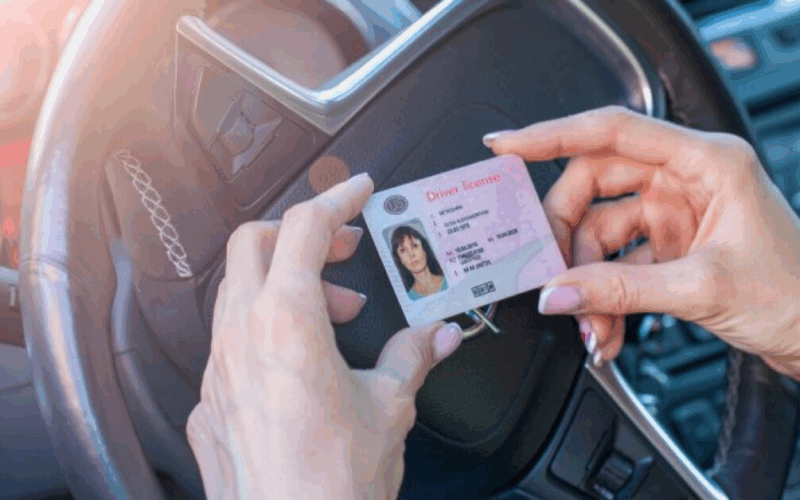In the United States, driving without a license can lead to serious legal trouble. But for many immigrants who live in the country unlawfully, getting a legal driving license has been a major challenge. Fortunately, 19 states now offer special driving licenses that allow these immigrants to drive legally. This change helps them manage daily life, take children to school, and commute to work without fear of arrest.
These special licenses are not the same as regular driver’s licenses issued to US citizens or legal residents. Instead, they are designed to acknowledge the unique situation of immigrants who do not have legal immigration status. The licenses ensure that drivers meet safety standards, can pass tests, and have insurance, creating safer roads for everyone. Let’s explore how these 19 states support immigrant drivers and what this means for communities across the nation.
Why Special Driving Licenses Matter for Undocumented Immigrants
Many immigrants in the United States rely on driving as their main mode of transportation. Without a legal driving license, they face risks such as fines, arrests, or even deportation if stopped by authorities. Special driving licenses help reduce these risks by allowing immigrants to operate vehicles legally.
Additionally, these licenses promote road safety. By requiring tests and proof of insurance, states ensure that all drivers understand traffic laws and are covered in case of accidents. According to the [National Conference of State Legislatures (NCSL)](https://www.ncsl.org/research/immigration/drivers-licenses-for-undocumented-immigrants.aspx), states issuing these licenses see benefits in both public safety and community trust. When everyone on the road follows rules, accidents decrease, benefiting all drivers.
Which States Offer Special Driving Licenses to Immigrants?
Currently, 19 states have laws or programs allowing immigrants living unlawfully to obtain special driving licenses. These states include California, New York, Colorado, Washington, and Illinois among others. Each state has its own name for the license, such as “Driving Privilege Card” or “Limited Purpose Driver’s License.”
The licenses usually do not permit driving across state lines or serve as proof of identity for other purposes like voting or federal work authorization. They strictly allow the holder to drive within that state. A good list of these states and their rules is maintained by the [American Civil Liberties Union (ACLU)](https://www.aclu.org/news/immigrants-rights/which-states-have-driver-licenses-for-undocumented-immigrants/).
How Immigrants Can Apply for These Special Licenses
Applying for a special driving license involves several steps similar to applying for any driver’s license but with specific documentation requirements. Applicants must provide proof of residency in the state, show identity documents (which might include foreign passports), and pass written and driving tests.
Unlike regular licenses, these special licenses do not require proof of legal immigration status. However, applicants must meet all other criteria, such as vision tests and understanding traffic laws. The departments of motor vehicles in these states provide clear instructions on the process.
Benefits Beyond Driving
Allowing undocumented immigrants to drive legally offers benefits beyond mere transportation. It helps families stay connected, supports economic stability, and reduces fear of law enforcement encounters. When immigrants can drive safely and legally, they are better able to contribute to their communities and the economy.
This positive impact is recognized by many advocacy groups and policymakers. According to a report by the [Pew Research Center](https://www.pewresearch.org/fact-tank/2021/04/15/immigrants-are-a-growing-share-of-the-u-s-population/), providing legal driving options helps integrate immigrants more effectively, fostering trust and cooperation between communities and local authorities.
Challenges and Controversies
Despite the clear benefits, some states still do not allow undocumented immigrants to obtain any form of driving license. There are political debates about whether these licenses encourage illegal immigration or pose security risks. However, studies show that the majority of voters in states with these licenses support them for safety and humanitarian reasons.
It is important for immigrants and their families to stay informed about the rules in their state and understand both their rights and responsibilities. Organizations like local immigrant support groups and legal aid clinics can provide guidance.
Looking Ahead
The movement toward granting special driving licenses to immigrants in the US continues to grow. More states may adopt such measures to improve road safety and support immigrant communities. This change reflects a broader trend of acknowledging the complex realities faced by undocumented immigrants and seeking practical, fair solutions.
For young immigrants and their families, these licenses mean more freedom and security on the roads—a small but important step toward inclusion and equal opportunity. Keeping up with the latest laws in their state can help them benefit fully from these policies.




